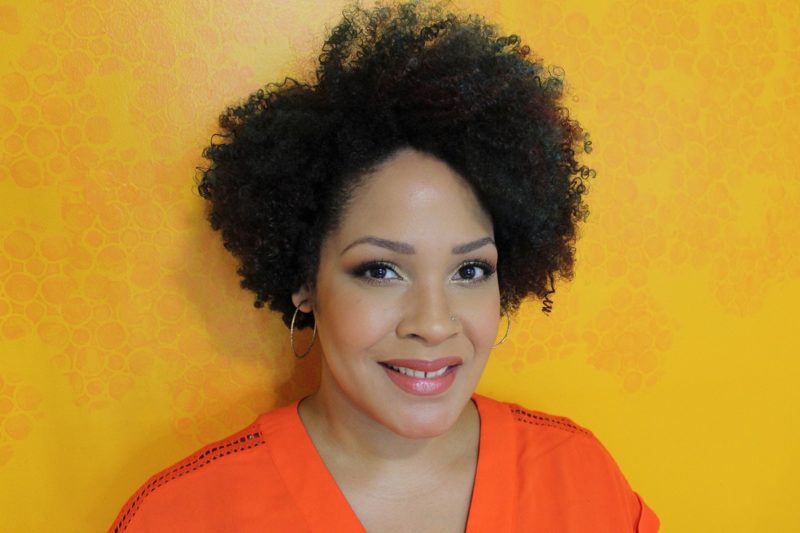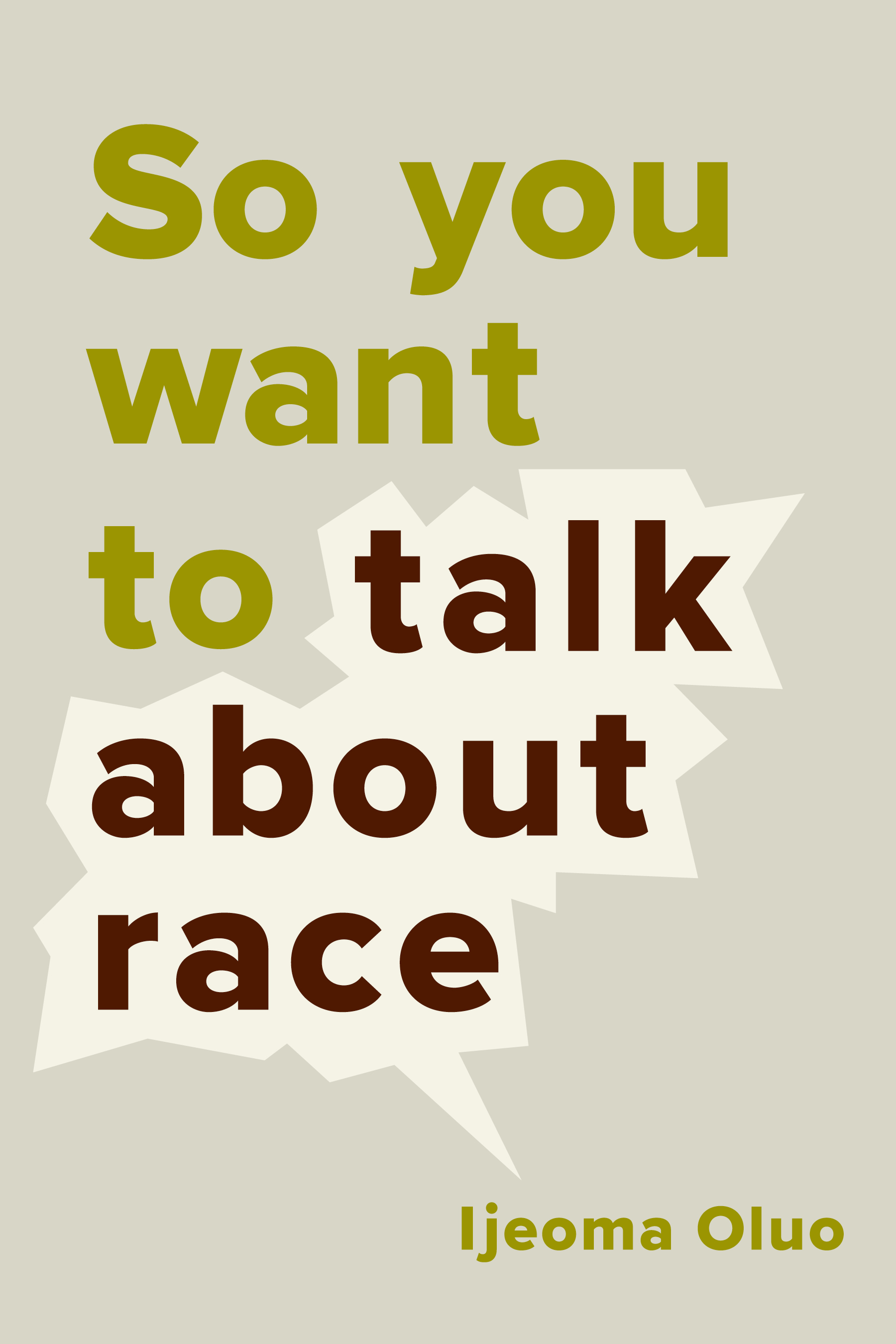‘I Might as Well Start a Fire’: Author and ‘Internet Yeller’ Ijeoma Oluo on Talking About Race
A Seattle-based writer and speaker, Oluo releases her highly anticipated debut book, So You Want to Talk About Race, this month.

I first came across Ijeoma Oluo’s writing four years ago, when I read a brief piece about her in New York magazine, which quoted her profound tweets about the myriad ways in which police officers have killed unarmed Black people. A quick Google search on Oluo introduced me to her other lucid and trenchant writing about oppression and social justice. I became an instant fan, and when I heard about the release of her first book, So You Want to Talk About Race, I jumped at the chance to speak with her.
While Oluo might be best known for her writing about race and social justice, she pens equally stirring pieces on mental health and abuse against women. An essay about depression, as well as one about the popular Netflix series “13 Reasons Why,” poignantly relate her struggles with having depression while raising children and the dangers of suicide ideation. She’s been called upon to voice her opinion on the #MeToo movement, and recently wrote about why she turned down a request by USA Today to write against due process for accused sexual offenders, a piece she believed would have unfairly centered the needs of accused sexual offenders over the women they’d harmed. “Each position doesn’t have to be equally countered,” she said. “I’m not going to write recklessly.”
Thirty-seven year-old Oluo and her younger brother, Ahamefule, were born in Denton, Texas, and raised by their single mother, a Kansas native, in the northern Seattle suburb of Lynnwood, Washington. (Another sibling, Jacqueline, was born when Oluo was 12 years old.) They were poor. Sometimes the electricity was cut off and meals came from local soup kitchens. Oluo’s father returned to Nigeria when Ahamefule was one month old, and aside from two phone calls and two letters, Oluo never heard from him before his death in 1997.
“Having a white mother, my siblings and I likely had even fewer conversations about race than black children raised by black parents, because there was a lot about our lives that our mother’s whiteness made hard for her to see,” she explains in her new book. During their childhood, Oluo’s mother remained optimistic that her children would have the same opportunities as everyone else did and failed to notice the “tiny cuts of racism” they endured until they reached adulthood.
As a child, Oluo always loved writing, but as a single mother with two sons of her own (now ages 16 and 10) she needed a stable job to be able to pay her mortgage. After graduating with a political science degree from Western Washington University, she entered the tech world in Seattle, starting as a business analyst and moving into network coding, digital marketing, and advertising. She started a food blog to fulfill her more creative side.
Over time, something inside Oluo began to shift. Writing about food didn’t satiate her need to discuss issues happening around the world. Oluo could no longer laugh off the racist jokes of her friends and colleagues. She didn’t feel comfortable bringing up Black Lives Matter at the watercooler with co-workers who were mainly older white men. “There’s never a right time to start talking about race,” she told me over the phone. “I might as well start a fire. Having kids was a huge part of this [need to speak out]. It wasn’t just about me anymore.”
She began to repurpose her blog and utilize social media to talk about social justice. Outlets like xoJane and Jezebel began republishing her blog posts, and her pieces soon appeared in the Stranger, the Seattle Globalist, the Guardian, New York magazine, and the Huffington Post.
For the most part, her co-workers were unaware Oluo had developed such a large online presence speaking out about social justice. “I’d write marketing material at my desk and run out to the car to do an interview with MSNBC,” she said. But this dual life began to take a toll on her, and she became increasingly unhappy in her corporate job. “Once you start talking about the honest truth, it becomes really hard to be silent,” Oluo noted. She quit three years ago, surprising even herself. “It was shocking for me to quit. I’m not the type of person who does things like this,” she said. She’s been a freelance writer ever since and has been a contributing editor at The Establishment, an online feminist publication, since its 2015 launch.
Part of Oluo’s success stems from her ability to harness and build communities on social media. Her viral Facebook posts and tweets are as eloquent, forthright, and authentic as her longer essays. Her observations cut to the heart of any issue in a way that’s easy to digest. In a recent tweet responding to the outcry surrounding Democratic Sen. Al Franken’s resignation, which some progressives believed was too high a price to pay for his alleged sexual harassment and assault of some eight women, Oluo homed in on the salient issue: “Saying that we need to go softer on our values so that we can win elections and THEN live up to them later is like saying we can bake a cake with poisoned ingredients but then we’ll frost it with nice, sweet icing later & we’ll be able to eat it without getting sick.”
Oluo’s pièce de résistance may very well be her April 2017 profile in the Stranger of Rachel Dolezal, the white woman who claimed to be Black, served as head for the Spokane chapter of the NAACP, and taught Africana studies at Eastern Washington University before she was exposed in 2015 by investigative journalist Jeff Selle at Idaho’s Coeur d’Alene Press. Oluo’s viral interview—which went live a few weeks after Dolezal published her book, In Full Color: Finding My Place in a Black and White World, and changed her name to Nkechi Amare Diallo—“damn near broke the Stranger website.”
Oluo wasn’t thrilled about the assignment. “I still wanted to say no when [my editor] called me and asked me [to do it]. I was so disgusted with this topic and didn’t know if I could pull it off until I did,” she explained to me during the interview.
While working on the piece, she was filled with anxiety. “I cried legit tears. I was tortured by my obsession with my moral responsibility as a writer, especially to marginalized communities,” she said. “This was a piece that could have done a lot of harm.”
What made the profile resonate so much with readers? It didn’t fall into the same trap other media organizations do when they portray Trump supporters and white nationalists as friendly, salt-of-the-earth, God-fearing citizens who register for wedding gifts at Target. Rather than centering Dolezal, Oluo focused her piece on how Dolezal’s con harmed Black communities. It’s been praised as a model for reporting on extremism and named one of Bustle’s Best Stories By Women in 2017.

So You Want to Talk About Race, Oluo’s highly anticipated debut book is a culmination of her body of work. It’s not a book for Black people, nor is it a book for indigenous or other people of color who feel frustrated when their attempts to talk about oppression are met with either aggression or blank stares. Rather, it’s a manual for the white people who, after the presidential election, suddenly came to realize they’ve been benefiting from white supremacy their entire lives—and are now ready to do something about it. It’s a wakeup call for those who once proclaimed “this is not us” while white nationalists stormed through Charlottesville, Virginia, (where Heather Heyer was brutally killed) but who now understand that this has always been us. It’s for well-meaning progressives who once believed racism primarily consisted of slurs and segregation and now see its widespread systemic and institutional reach. Writes Oluo: “As a black woman, race has always been a prominent part of my life. I have never been able to escape the fact that I am a black woman in a white supremacist country.”
Although Oluo can be critical when people of all races demand that Black people educate them about racism, she explains in the introduction that she wrote the book because she still “deeply appreciates” the readers who write to her with questions because they are trying to understand racism.
The titles of the 17 chapters in So You Want to Talk About Race pose common questions for potential allies. “What if I talk about race wrong?” “Is police brutality really about race?” “What are microaggressions?” “I just got called racist, what do I do now?” Named one of Seattle’s most influential people in 2015 by Seattle Magazine, Oluo reminds readers “you don’t have to ‘be racist’ to be a part of the racist system.” She provides clear and concise answers for questions that demand the emotionally draining (and harmful) labor of Black, indigenous and other people of color. Given the acutely hostile sociopolitical climate in the United States, the book couldn’t have come at a better time.
Why is talking about race something so many people still have great difficulty with? “I think we forget what the history of debate is, and where it came from,” Oluo said. “These were privileged white men who got together to discuss the fates of the lower halves. [Debate is] the favorite sport for white dudes. Black people didn’t get to argue the point of slavery,” she said. “We still expect gay people to have the best argument as to why they should get to marry. Conversations should be about what is morally right, what helps, and what harms people.” Oluo partially credits her degree in political science—where she learned how to interpret data and think critically—for her ability to challenge long-held assumptions and “default positions,” about power and oppression. Perhaps this is also the reason she’s able to so seamlessly chronicle her experiences of racism while simultaneously acknowledging her own light skin privilege.
Oluo’s mind runs 24 hours a day and though she has yet to figure out a healthy work-life balance, creating art replenishes her mental and emotional reserves. A former paper quiller (a craft that involves rolling thin strips of paper into designs), Oluo, who has ADD and found quilling too messy and too time-consuming, has since turned to makeup. “I came to makeup from a meditation and self-care standpoint,” she said. “It’s a huge stress relief.” She records makeup application videos and posts them to Facebook and YouTube, where they have been viewed thousands of times.
Cosmetics and social justice may inhabit opposite realms, but the way Oluo describes how to properly apply eye shadow to “hooded eyes,” reflects, to some degree, how she approaches addressing systems of oppression. “I have to look at form differently, look at light differently, and navigate shadow and light. For me, it’s a problem to solve.”

